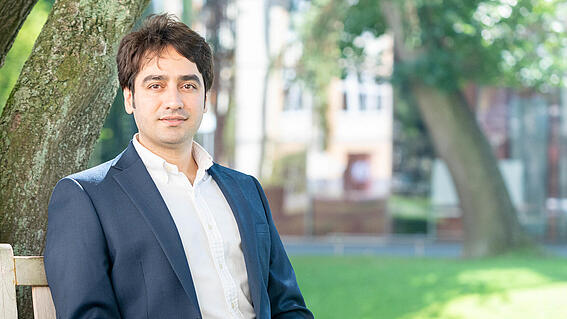Which issues are you hoping to research while at the Bucerius Law School?
The issue of the legality of economic sanctions is one of the most vexed and challenging areas of international law, and that is what I’m researching at Cardozo and here at the Bucerius Law School. My JSD thesis was more about the rights-based and legitimacy aspects of unilateral economic sanctions and assessing their efficacy. But my research at the Bucerius Law School is more about the legality aspect based on the relevant rules of international law from the perspective of European legal scholarship.
Briefly, each unilateral sanctions program needs to be justified individually to assess whether it has been proportionately employed in response to a wrongful act in international law that has given rise to a clear injury.
However, in general the illegality of the application of unilateral sanctions has not been confirmed yet. My research endeavors to respond separately to the general controversy about the legality of primary and secondary sanctions. It tries to assess the legality issue based on international customary law as well as multilateral treaties to determine the legality boundaries.
In addition, it uses an alleged treaty-based violation case between Iran and the United States to analyze the sanctions’ legal framework and the ICJ jurisdictional question. Moreover, it asserts that states have obligations to impose unilateral sanctions against a wrongdoer state, although the wrongful act should be determined by an international organization in advance and the humanitarian considerations need to be addressed specifically.
Regarding secondary unilateral sanctions, which are imposed mainly by the United States, it seems there is a new norm emerging that would prohibit their application. Also, by comparing secondary sanctions with the taxation authority of the US and Germany, and based on the limited effect doctrine, the research closes with the illegality of imposing sanctions merely based on the worldwide dollarization hegemony.
What makes your area of research relevant?
During the JSD program at Cardozo Law, I was guided by remarkable and knowledgeable supervisors who taught me to analyze the question of the legitimacy of sanctions from the perspective of both US and other international law scholars. However, to make my research more comprehensive, I wanted to include European scholarship on the legality of international sanctions in my research as well.
Why did you decide to come to Germany?
Germany is the main European country that has legally challenged the practice of imposing secondary sanctions, and in this regard Bucerius has an extensive library in international law and international trade law. The other main reason for researching and studying law abroad is to have the opportunity to be among scholars and lawyers from all over the world.
Today, after visiting and studying at several schools in Iran and the US, I can attest to the fact that the Bucerius Law School is part of a multinational family of law schools delivering legal education of the highest quality.
What has been the most rewarding aspect of your visit here so far?
The most rewarding part of my stay here so far, is having had the chance to have frequent consultations with and receive precious comments from some of the leading law professors in international law and European law. Also, coming to Germany has given me the chance of being referred to other magnificent sanctions scholars who live and teach here. Their comments greatly enhance the quality and depth of my research.


